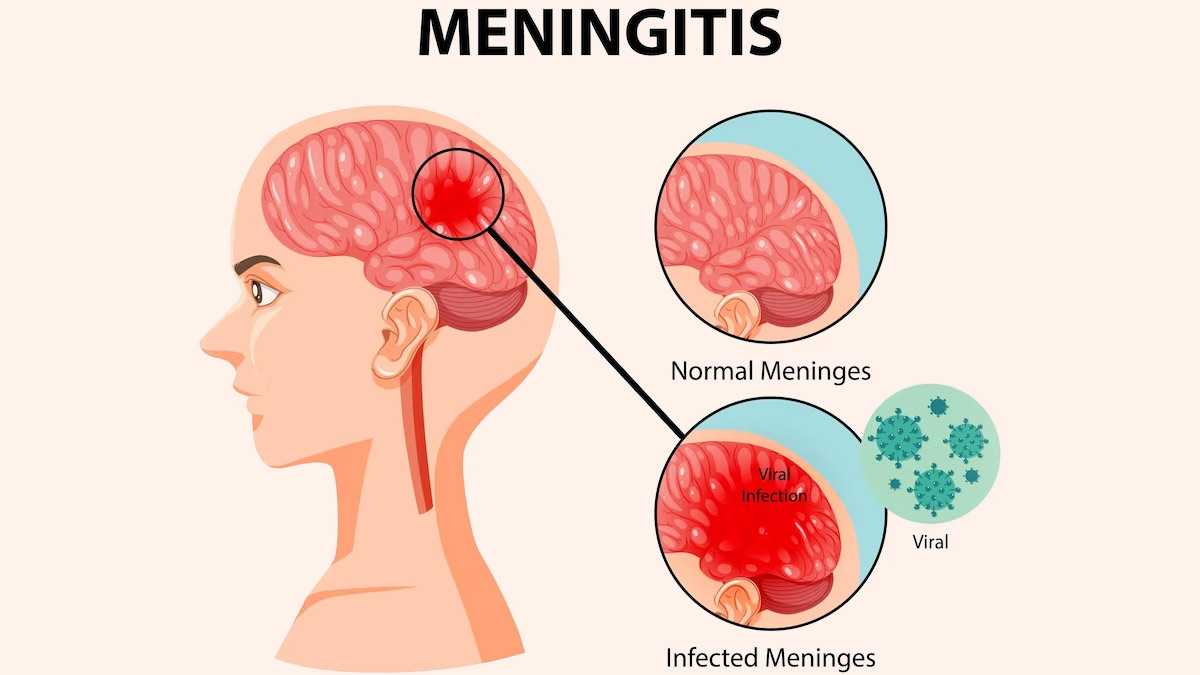
Meningitis is the inflammation of the meninges, the protective membranes covering the brain and spinal cord. Viruses and bacteria are the most common causes of meningitis. Bacterial meningitis, in particular, can be fatal if not treated early.
“In cases of meningitis, swelling is usually caused by a bacterial or viral infection of the fluid around the brain and spinal cord. However, different conditions, medicines, and injuries can all cause meningitis,” said Dr Rajiv Chaudhary, Bachelors of Medicine And Surgery (MBBS), VMMC, Delhi.
What the Symptoms
Common signs of meningitis include:
- High fever
- Severe headache
- Stiff neck
- Nausea and vomiting
- As per MayoClinic, patients have a sensitivity to light
- Confusion or altered mental state
- Skin rash (more common in some types of bacterial meningitis)
If you or someone you know experiences these symptoms, seek medical attention immediately. Early diagnosis and treatment are important in preventing complications.

What Are The Potential Risk Factors
Certain types of people are more likely to get meningitis. College students, military personnel, and those with particular medical issues are examples of these populations. Consider exploring additional preventive steps with your healthcare physician if you fall into the high-risk category.
Also read: Decoding Headaches: From Tension To Brain Issues, Unraveling The Causes And Solutions
Ways To Prevent Meningitis
Vaccination
Vaccination is one of the most effective ways to prevent certain types of bacterial meningitis. Vaccines like the meningococcal vaccine and Hib vaccine provide protection against some of the common bacteria responsible for meningitis. Ensure that you and your family members are up to date on your vaccinations, especially if you are in a high-risk group.
Practise Good Hygiene
Viruses that cause viral meningitis can spread through close contact and poor hygiene. To reduce your risk:
- Wash your hands frequently with soap and water.
- Avoid sharing utensils, drinks, or personal items with others.
- Cover your mouth and nose when coughing or sneezing.
According to Centres For Disease Control and Prevention, certain bacterial meningitis pathogens, such as L. monocytogenes, can spread through food. However, the majority of these pathogens move from person to person.

Maintain a Healthy Lifestyle
A strong immune system can help your body fight off infections, including meningitis. To boost your immune system:
- Eat a balanced diet rich in fruits, vegetables, and whole grains.
- Get regular exercise to stay fit and healthy.
- Get enough sleep to allow your body to recover and regenerate.
- Be Cautious in Crowded Settings
- Meningitis can spread more easily in crowded places, such as dormitories and childcare centres. In such settings:
- Practise good respiratory hygiene.
- Avoid close contact with anyone showing symptoms of illness.
- Encourage good ventilation to reduce the risk of transmission.
Meningitis is a serious illness, but by staying informed and taking preventive measures, you can reduce your risk and protect yourself and your loved ones. Knowing the symptoms, getting vaccinated, practising good hygiene, maintaining a healthy lifestyle, and being cautious in crowded settings are simple yet effective ways to tackle meningitis. Early detection and treatment can make all the difference in ensuring a positive outcome in case of infection.







